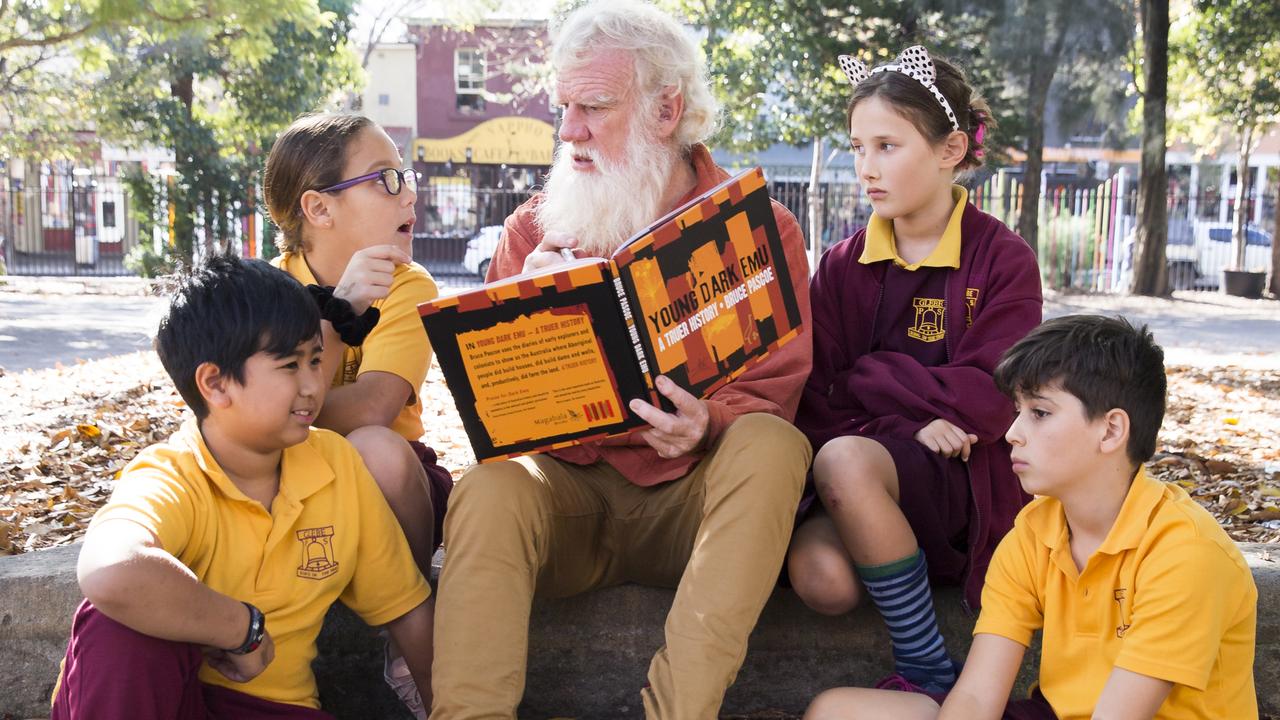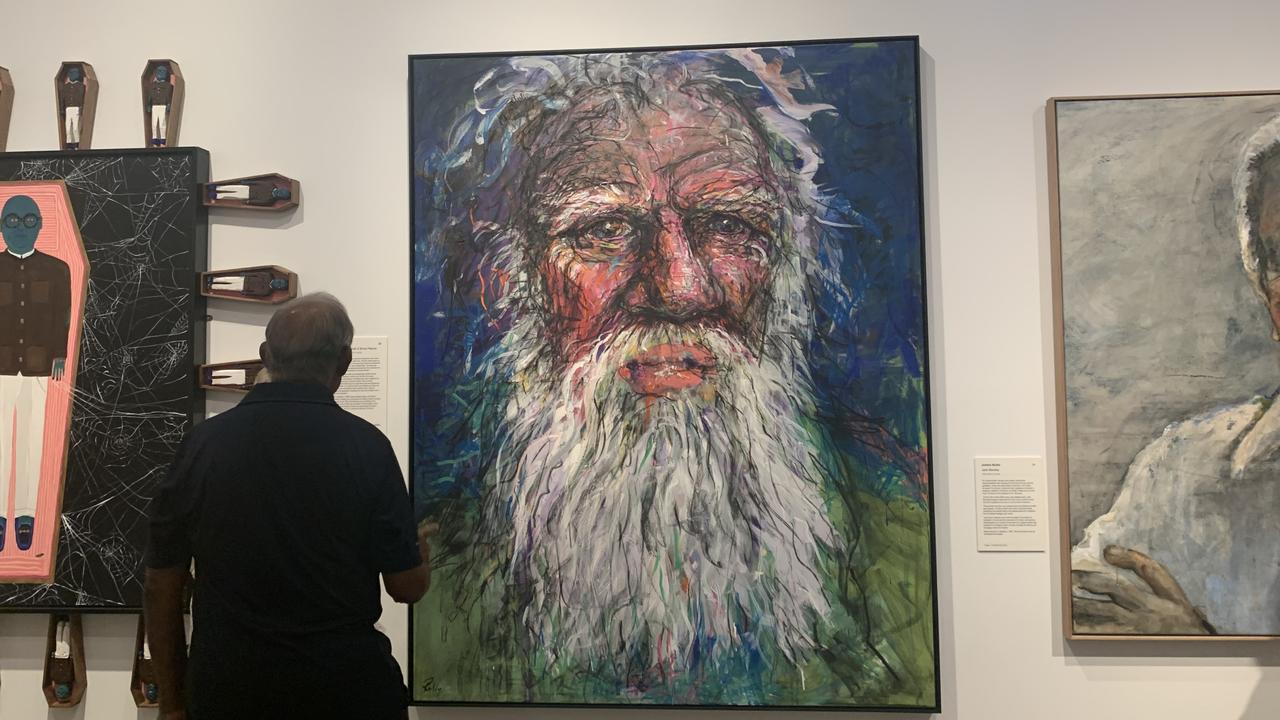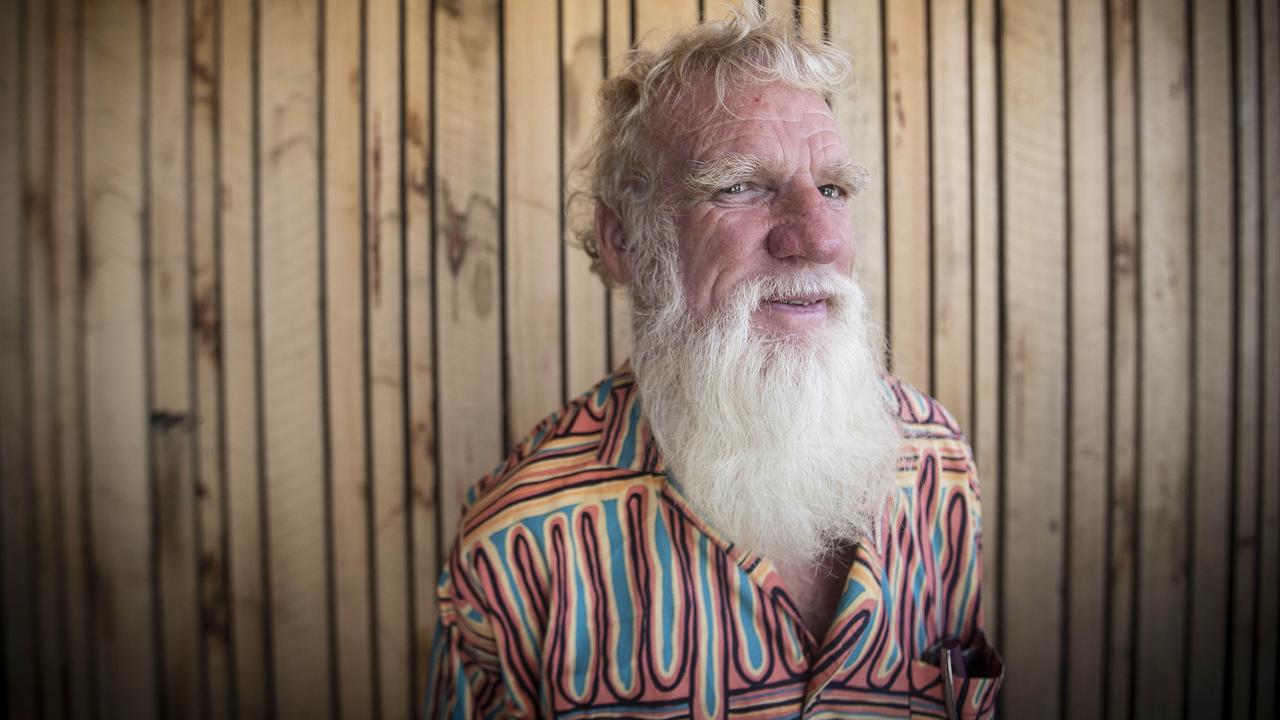Academics behind Dark Emu debunking say Indigenous history book should be removed from school libraries
Bruce Pascoe’s “debunked” Indigenous history book Dark Emu should be pulled from school libraries, two leading academics say.
Two highly respected academics behind a devastating debunking of 2014’s smash hit Dark Emu say Bruce Pascoe’s controversial Indigenous history book should be pulled from schools.
It comes after Sky News Host Andrew Bolt called on Indigenous Affairs Minister Ken Wyatt to apologise for “his part” in “Australia’s greatest literary hoax”, while a historian declared the claims in Dark Emu have been all but “demolished” by the rebuttal published this week.
Pascoe’s hugely influential 2014 book, which won numerous literary awards and was heavily promoted by the ABC, painted a radically different view of Aboriginal history prior to colonisation.
It claimed that Indigenous Australians were not just hunter-gatherers but engaged in agriculture, irrigation and construction, and lived in stone houses in cities of up to 1000 inhabitants.
While conservative critics have long been sceptical of Dark Emu, anthropologist Peter Sutton and archaeologist Keryn Walshe’s scholarly analysis, Farmers or Hunter-Gatherers? The Dark Emu Debate, has cast fresh doubts on the accuracy of Pascoe’s claims.
ANU historian Tim Rowse, in his review Prof Sutton and Dr Walshe’s book published in The Canberra Times on Friday, declared that they “chip away at so many parts of Pascoe’s thesis that it is, in my opinion, demolished”.

Speaking to 2GB’s Ben Fordham on Thursday, the authors took aim at Pascoe and said they had been motivated to set the record straight after seven years of his claims largely going unchallenged.
“I thought it would be a typical kind of amateur’s work that would have its day for five minutes and then disappear,” Professor Sutton said.
“Because it was clearly not the work of someone who’d carefully listened to senior Aboriginal people on these questions, had not lived among them, learned to speak their languages or any of that kind of thing, which is what anthropologists have to do in order to have any kind of wisdom passed on that they can share with others.”
He continued, “But I was wrong. It was quiet for a while but then it took off like a snowball. When it got to the point of being inserted into school curricula, either as a reference or as in fact the major source, I thought about the children – who’s going to stand by and watch them be misinformed?”
Dr Walshe told 2GB she was concerned about Dark Emu being in school libraries.
“Yes, I am – I think it shouldn’t have that status,” she said.
“It doesn’t need to be in the school curriculum and in fact it shouldn’t be in the school curriculum, because of the errors and the incorrectness of the entire work. It’s not about a different interpretation (of history), it’s about misuse of the archival sources, the actual primary sources. It’s a matter of looking at those sources and using them in the correct manner with integrity and reliability, and that is not what Dark Emu reflects.”

Dr Walshe admitted that at first she couldn’t make it through the book.
“It had been recommended to me by many friends who did enjoy it and found it to be of great benefit, but I struggled with it,” she said. “I couldn’t find any archaeological evidence to support the claims that were being made.”
She said one piece of misinformation she was particularly concerned about was Pascoe’s claim that Indigenous people used agricultural tools.
“It was not the case. It simply was not the case,” she said.
“The objects he focuses on are implements which are large and heavy, and would have been used in the usual way of large, heavy objects – to break open wood, to take branches off trees and so on, when people are out collecting possums or honey or other food sources like that.”
Prof Sutton addressed the claim of permanent houses.
“Some of the houses were actually kept going from season to season but they weren’t lived in for the whole year round generally,” he said.
“There was some housing in the western district of Victoria and a few other places where people stayed for maybe a year or more, now that’s at the extreme end. The usual pattern is that people set up housing that was as complex only as it needed to be for the season, so in the hot weather you set up shades or sleep under the stars. Where it’s windy, they would make a windbreak, they wouldn’t make a great big house two metres high.”

He said Dark Emu “hunts around for tiny scraps of evidence of stone housing and then elevates this into the generalisation that Aboriginal people lived in stone houses all over the country”.
“There is absolutely no evidence for that generalisation,” he said.
In a written response to Nine Newsapers’ Good Weekend on Saturday, which first reported on Prof Sutton and Dr Walshe’s work, Pascoe told the magazine that his book had “encouraged many Australians to recognise the ingenuity and sophistication of the many Aboriginal cultures, societies and land-management practices, which had not previously been brought to mainstream attention”.
“The extent of Aboriginal social and economic organisation has been surprising to many Australians and a nuanced debate needs to be ongoing,” he said, adding it would be “disappointing” if Australia’s understanding of Aboriginal history “digressed to a limiting debate about semantics and nomenclature”.
“Hunter-gatherer and farmer are both settler/colonial labels, and the long prevailing negative interpretation of hunter-gatherer has been used as a weapon against Aboriginal and Torres Strait Islander peoples (as a justification for terra nullius),” he said.
“Language can be used to help people to see the world differently, to open minds to new ways of seeing. This is what I tried to achieve with Dark Emu.”




